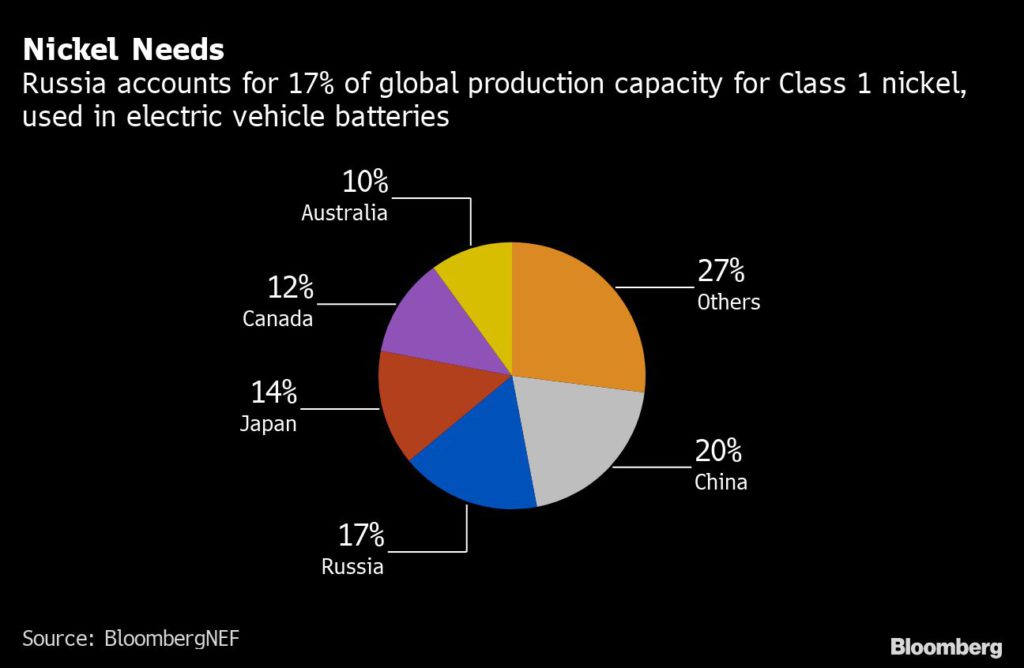CEO Elon Musk promised in 2020 “giant contracts” to companies able to produce nickel in an “environmentally sensitive way” amid concerns of an imminent deficit.
Since Musk’s pledge to miners, Tesla has inked nickel supply deals with the world’s largest miner BHP (ASX: BHP) in Australia, Prony Resources in the US and Talon Metals (TSX: TLO) in New Caledonia.
Nickel helps cram more energy into cheaper and smaller battery packs, allowing EVs to charge faster and travel farther between plug-ins.
Prices for the commodity have not surprisingly shot to historic records last year. It surged by an unprecedented 250% in a day earlier this month, forcing the London Metal Exchange (LME) to halt trading of the metal.
[Click here for an interactive chart of nickel prices dating back to 1989]
Tesla also has also secured lithium mining rights in Nevada and has off-take agreements for the battery metal with Liontown Resources (ASX: LTR) and Ganfeng Lithium (SHE: 002460), China’s no.1 producer of the commodity.
For cobalt, Tesla has as partner Glencore (LON: GLEN) the world’s largest producer thanks to its mines in Congo and it has even inked deals for graphite.
Musk has repeatedly flagged nickel supply as the company’s biggest concern, as the metal is a key component in batteries for longer-range vehicles. Tesla uses iron-phosphate for shorter-range vehicles.

According to BloombergNEF, battery-sector demand for nickel is expected to hit 1.5 million tonnes in 2030, up from 400,745 tonnes is expected to reach this year.
Sanctions against Russia over the invasion of Ukraine have added urgency to secure supplies of the metal, since the country holds about 17% of global capacity for refined Class 1 nickel, the type required for EVs.
Vale is the world’s top nickel producer, with mine and operations in Brazil, Canada and Indonesia, as well as fully-owned and joint venture refineries in China, South Korea, Japan, the UK and Taiwan.
(With files from Bloomberg)




